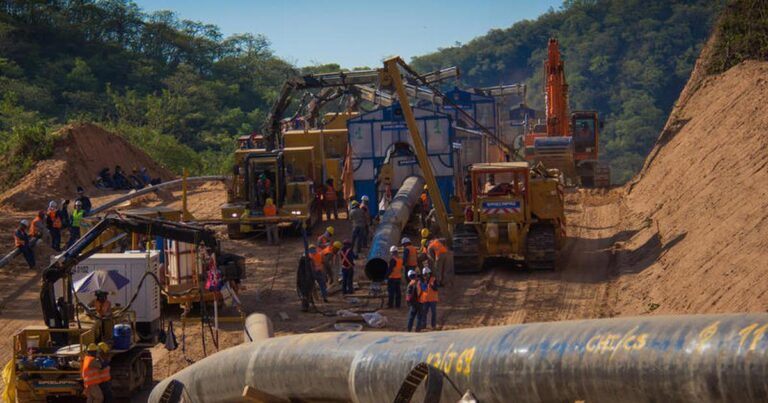The East African country has been keen on fast tracking its oil programmes since last year, and has signed a couple of deals to this effect.
Last year, Uganda and its collaborators, TotalEnergies and Tanzania got into an altercation with the European Union on a pipeline project, which the EU declared environmentally harmful. Despite this, the country insisted on going ahead with its oil exploration. Read the story here.
As recently as this month, the country signed production-sharing agreements (PSA) for two oil exploration blocks between two oil firms, including a unit of Australia’s DGR Global (DGR.AX). Once again reiterating its commitment to making oil a major revenue stream for the country.
“Uganda will commission on Tuesday the first of its four planned oil drilling rigs and start drilling the first production well, its petroleum agency said, a key milestone as the country races to meet its target of first oil output in 2025.” According to Reuters.
“Today we mark another milestone and move a step closer to first oil with the launch of the drilling of development and production wells for the Kingfisher oil fields,” The Ugandan Petroleum Authority discled via Twitter.
The organization also relayed that the president of the country, Yoweri Museveni was scheduled to officiate the launch “at the Spudding (drilling) site in Kingfisher project area, one of the country’s two commercial oil development areas.
Via this project, Uganda plans to eventually produce about 230,000 barrels of crude oil per day. According to Uganda’s Ministry of Energy and Mineral development, the rig will be used to drill a total of 31 wells in Kingfisher while three rigs to be deployed later in Tilenga project area will drill a total of 426 production wells,
Uganda for over two decades has discovered massive oil reserves within its borders, which the country had been slow to explore. However, the energy scramble of 2022, spurred by the Russia-Ukraine conflict, presented an opportunity to fill a market gap, which Uganda simply couldn’t ignore.
Also, a lack of infrastructure made it impossible for the country to fully delve into exploration. However, this issue seems to have been annulled.



